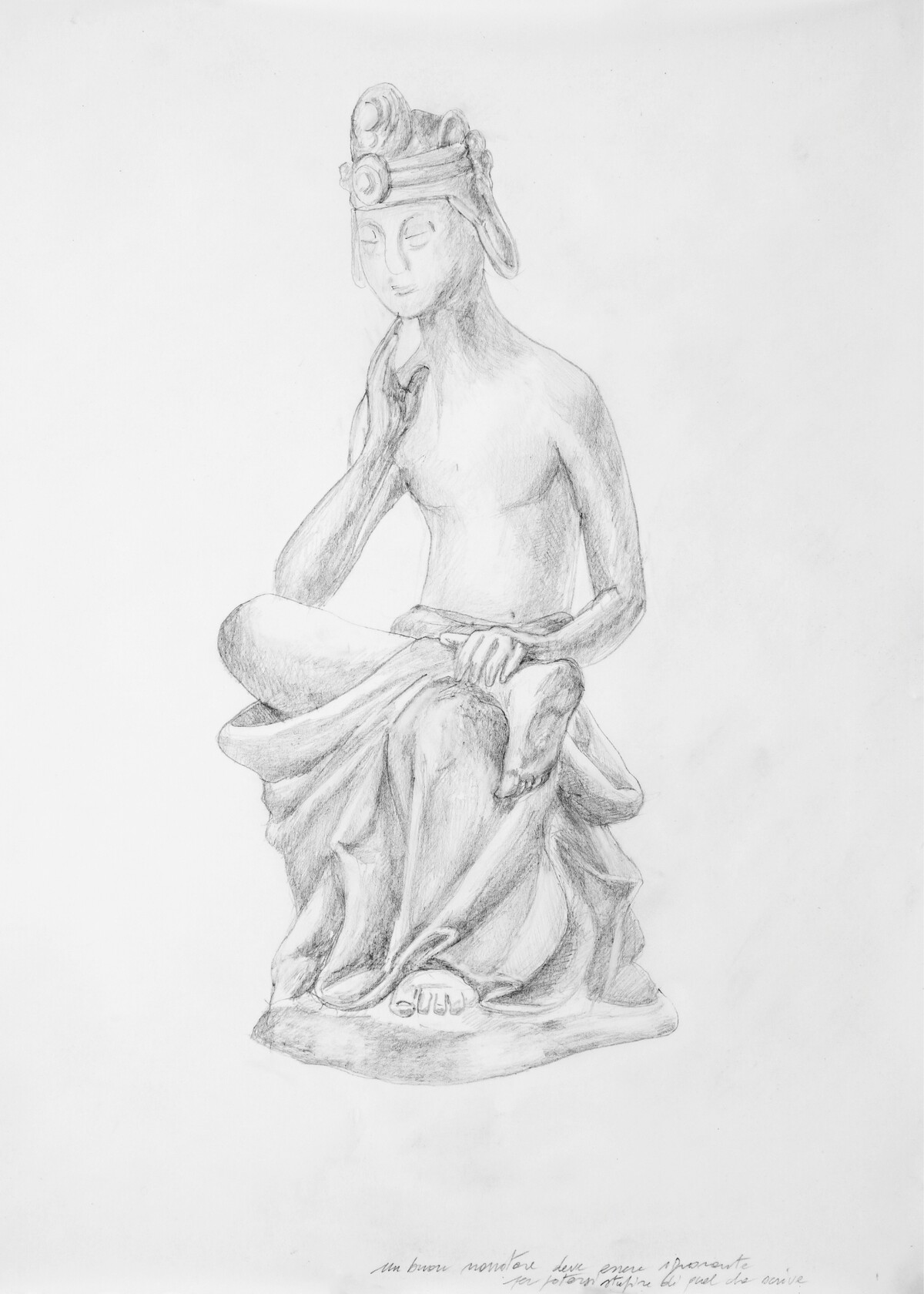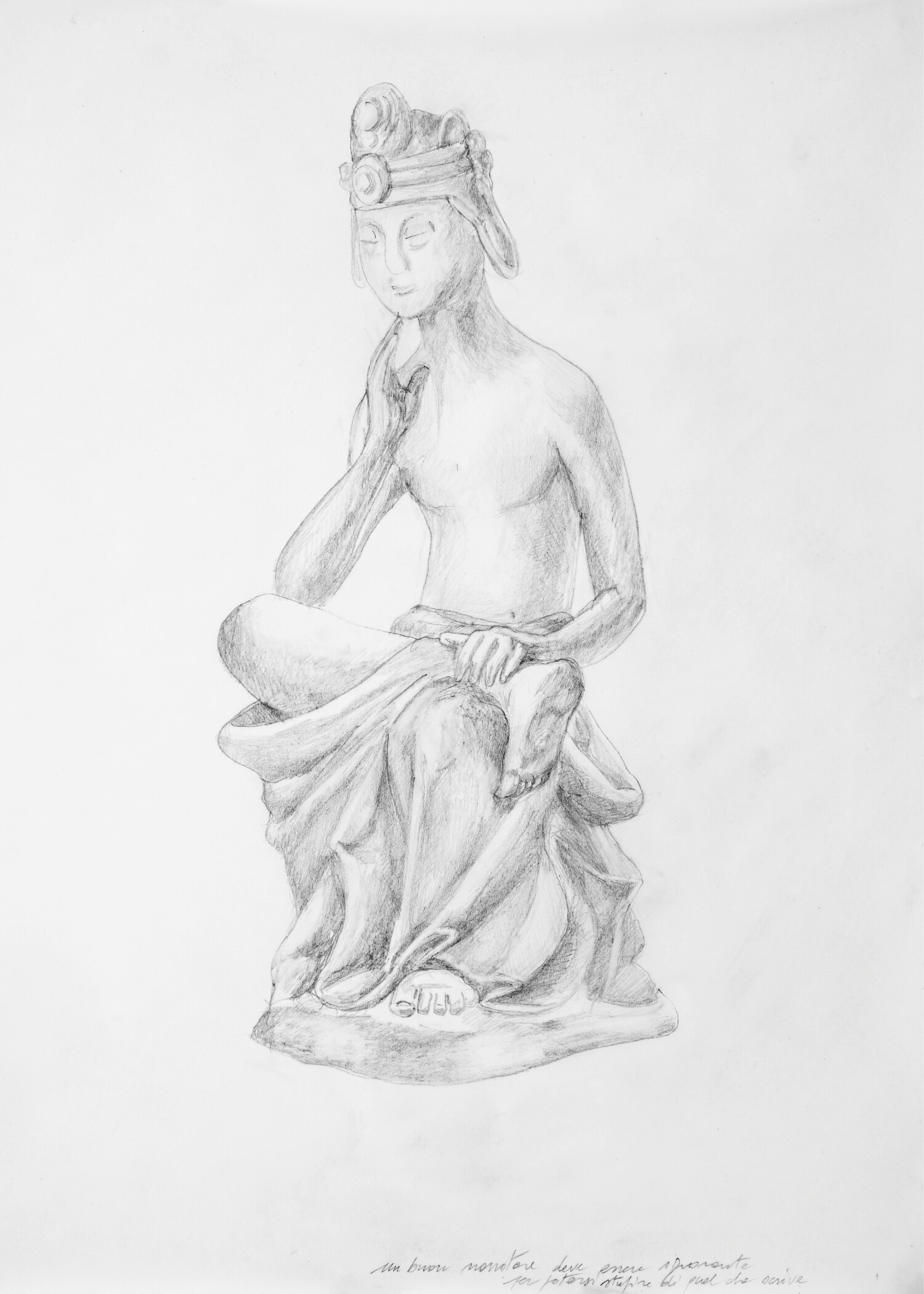April 20–November 24, 2024
Artists: Massimo Bartolini, in collaboration with Caterina Barbieri, Gavin Bryars, Kali Malone
“We listen in order to interpret our world and experience meaning.” —Pauline Oliveros
Presented with the support of the Directorate-General for Contemporary Creativity at the Italian Ministry of Culture, Due qui / To Hear is the project for the Italian Pavilion at the 60th Venice Biennale (April 20–November 24, 2024). Curated by Luca Cerizza (with the assistance of Francesca Verga), it presents work that Massimo Bartolini has created in collaboration with several musicians (for the permanent installations) and writers (for the public program), employing the cooperative approach that is a hallmark of his practice.
Playing on the homophones “two here” (in Italian, due qui) and “to hear,” in a translation that is only wrong at first glance, the title suggests that hearing—or rather, listening, the act of straining one’s ears—is an action directed towards others. Meeting and listening, relation and sound, go hand in hand in this project, as they have throughout the three decades of Massimo Bartolini’s practice.
The acoustic paradigm should be thought of here as a physical experience, but also as a metaphor, an invitation to pay attention: to listen to the Other, be it a human being, a machinic element, or a natural form. In Bartolini’s view, art is a path to knowledge, and the project suggests that “lending an ear” could become a tool for self-improvement within the community of this world.
Through sculptures, installations, sound works, and performances, with a range that is characteristic of this artist, the project endeavors to create a context of experience. Visitors to the pavilion move along a path that can be followed in either direction, through three areas built around acoustic experiences and meeting points that respond to the physical characteristics of each exhibition space, without adopting any form of display. Within this context, we encounter sound works created with the aid of musicians from different generations. Caterina Barbieri (b. 1990, Italy) and Kali Malone (b. 1994, United States), two leading figures in the field of electronic and experimental music, have jointly composed a piece for Bartolini’s primary installation, which occupies the entire main room of the exhibition space as an environment that visitors can walk through. Together with his son Yuri (b. 1990, Canada), the re-known minimalist and experimental musician Gavin Bryars (b. 1943, United Kingdom) has written a choral composition based on a poem by Argentinian writer Robert Juarroz. A veces ya no puedo moverme (“Sometimes I can no longer move”) alludes to a human being who feels like a tree, or some other form of plant life connected to the world by its roots, “as if everything were born in me or as if I were born in everything.”
The same collaborative approach found in the permanent works is also present in the more performative and discursive side of the project. Children’s book author and illustrator Nicoletta Costa and novelist and poet Tiziano Scarpa have written new short stories that will be performed in the garden during the opening days of the Biennale, while an extensive Public Program, curated by Luca Cerizza in collaboration with Gaia Martino, will accompany the exhibition. Inspired by a quote from musician, artist, and theorist John Cage, If Only We Had Ears will alternate talks, interviews, musical performances, conversations, and workshops from mid-May to mid-September. The events, presented in the Giardino delle Vergini, will be organized around four angles of the acoustic paradigm, to lend a voice to the human, social, spiritual, and ecological perspective suggested by the project in the Italian Pavilion. Guests will include: Elena Biserna, Nina Eidsheim, Haytham El-Wardany, Attila Faravelli, Michelangelo Frammartino, George David Haskell, Neelaksh Josh, Brandon LaBelle, Valentina Megaletti, Maurizio Maggiani, Enrico Malatesta, Pedro Oliveira, Diana Lola Posani, Nicola Ratti, Veniero Rizzardi, Francesca Tarocco, Marco Vannini, and David Toop.



